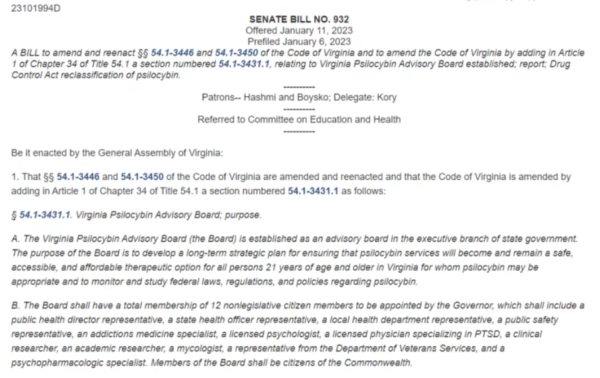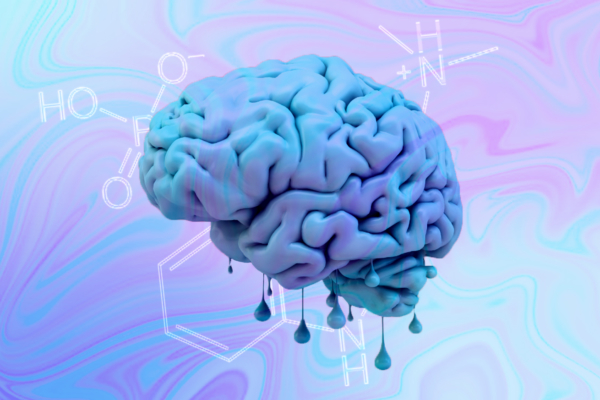
If you tried to keep up with psychedelic news stories this week, it can be overwhelming – new breakthroughs in research, updates in policy and regulations around psychedelics… the list goes on! The past few days have been filled with developments that are sure to be of interest if you’ve ever explored psychedelics. From major government decisions to intriguing study results, this week has definitely provided plenty for us psychedelic fans to get our teeth into – so let’s dive in and explore the latest headlines!
Australia Reschedules Psilocybin and MDMA
Australia will now allow prescriptions of MDMA as a treatment for PTSD and psilocybin as a last resort treatment option for otherwise treatment resistant depression. On July 1st, 2023, the substances classified as “prohibited” under Schedule 9 of the Poisons Standard will be reclassified and moved to Schedule 8 as controlled drugs.
Dr. David Caldicott, Senior Clinical Lecturer at Australian National University stated, “In addition to a clear and evolving therapeutic benefit, it also offers the chance to catch up on the decades of lost opportunity in delving into the inner workings of the human mind, abandoned for so long as part of an ill-conceived, ideological ‘war on drugs’”.
Read: Australia Reschedules Psilocybin and MDMA to Begin Treating TRD and PTSD
Virginia Senate Approves Psilocybin Rescheduling Bill
This week, Virginia made a major stride in psychedelic progress by passing Virginia State Senate Bill No. 932 which would shift psilocybin from its current Schedule I classification to the far less stringent Schedule III designation. This monumental news has everyone abuzz and keeps us up-to-date with the latest developments and stories on psychedelics! This comes with significant reductions in potential punishments for possession and use, reducing jailtime to a maximum f 1 year plus a $2500 fine compared to the current penalty of 10 years plus a $2500 fine. The bill also seeks to establish the Virginia Psilocybin Advisory Board to generate long term strategies for establishing psilocybin as a potential therapeutic agent for mental health conditions.

Read: Virginia Senate Approves Psilocybin Rescheduling Bill, Paving the Way for Therapeutic Use
Hawaii Moves One Step Closer to Creating a Therapeutic Psilocybin Working Group
Another US state with legislation on the docket. State lawmakers are deliberating on a bill that would establish a Therapeutic Psilocybin Working Group, similar to Virginia’s proposal. It would exist to investigate potential therapeutic advantages of psilocybin regarding various mental health conditions, as well as strategies for regulations that would allow for safe and reasonably priced access to psilocybin once it has been vetted for therapeutic applications.
Read: Hawaii Moves One Step Closer to Creating a Therapeutic Psilocybin Working Group
Illinois Lawmaker Seeks Legalization of Psychedelic Mushrooms
The state now has a bill on the floor of the state legislature which would see it become the third state in the US to decriminalize psilocybin entirely. Denoted as the ‘CURE Act’ (Compassionate Use and Research of Entheogens), it also looks to establish the Illinois Psilocybin Advisory Board, and like Virginia and Hawaii it would exist to investigate the best way for psilocybin to be integrated into a structured therapeutic program that can be recognized by state law.
“Illinois has an opportunity to be a leader in the Midwest for this kind of facilitated use of psychedelics and the demand is here, the research is out there,” said Jean Lacey, executive director of Entheo IL.
More and More Steps in the Right Direction
Public support for programs that treat psilocybin and other psychedelics as legitimate medicinal substances has skyrocketed over the past few years, and lawmakers across the globe have begun to catch up with that sentiment. Establishing committees specifically devoted to the pragmatic installation of new guidelines for psychedelic use can also be seen as encouraging, as there will now be increased government literacy regarding the groundbreaking scientific and anecdotal data that suggests the potential for truly incredible alleviation of suffering and reduction of criminal penalties.
UC Davis Establishes Institute for Psychedelics & Neurotherapeutics
The Institute for Psychedelics and Neurotherapeutics will focus its studies on mechanistic ways that psychedelics affect the human brain and how to best translate these discoveries into therapeutics for depression, PTSD, addiction, Alzheimer’s, Parkinson’s, and many other diseases afflicting countless individuals.
“Psychedelics have a unique ability to produce long-lasting changes in the brain that are relevant to treating numerous conditions,” said David E. Olson, associate professor in the Department of Chemistry and the Department of Biochemistry and Molecular Medicine at UC Davis. “If we can harness those beneficial properties while engineering molecules that are safer and more scalable, we can help a lot of people.”
Baylor Launches Program Focused on Bioethics and Health Policy of Psychedelic Research
The Center for Medical Ethics and Health at Baylor College of Medicine is building a research program focused on ethics, policy, and the implementation of psychedelic research. Its main goal is to launch a program exploring ‘Ethical and Legal Implications of Psychedelics In Society’ (ELIPSIS). A multidisciplinary team consisting of experts in psychology, behavioral science, bioethics, health policy, and licensed medical researchers will examine the ethical legal and social implications that this research can achieve. The program will also examine key questions facing the psychedelics industry as a whole, such as:
- What are the evidence-based policies and ethical guidelines needed to ensure safe an effective psychedelic research and use?
- How do we ensure adherence to these policies/guidelines and mitigate the risks of potential misuse?
- What are the legal implications for psychedelics, including federal drug scheduling, professional licensure, and overall standards of medical care?
- How can we understand and measure the psychosocial impacts of psychedelic research and use?
Cybin Announces Promising Results from Kernel Sponsored Feasibility Study Measuring Psychedelic Effects on the Brain
The purpose of the feasibility study was to analyze a participant’s experience with Kernel Flow while they were in an altered mental state after being given ketamine. The U.S. Food and Drug Administration granted clearance for this investigation in October 2021 and approval from the U.S Institutional Review Board came through in January 2022, signifying that all necessary standards had been met before commencing work on the project.
The study provided substantial evidence that Time Domain Near Infrared Spectroscopy (TD-fNIRS) is an effective and portable method of detecting changes in brain oxygenation levels based on neural activity. Additionally, the research was able to identify alterations in the cortex caused by ketamine which may be related to psychedelic experiences.
“The results from the feasibility study are very promising and provide further insights into the potential of this cutting-edge wearable technology to quantify neural activity and changes in brain biomarkers during the administration of psychedelics. The possibility of using this technology to develop a predictive tool to aid in identifying appropriate candidates for psychedelic-based therapy is also quite exciting, as is the convenience of a portable device, which could lend itself to more widespread use in clinical settings,” said Doug Drysdale, Chief Executive Officer of Cybin.
Read to learn more about key findings from the feasibility study
The psychedelic news stories this week has been remarkable and it’s only going to get better as more laws change and more studies reveal the potential of psychedelics.





